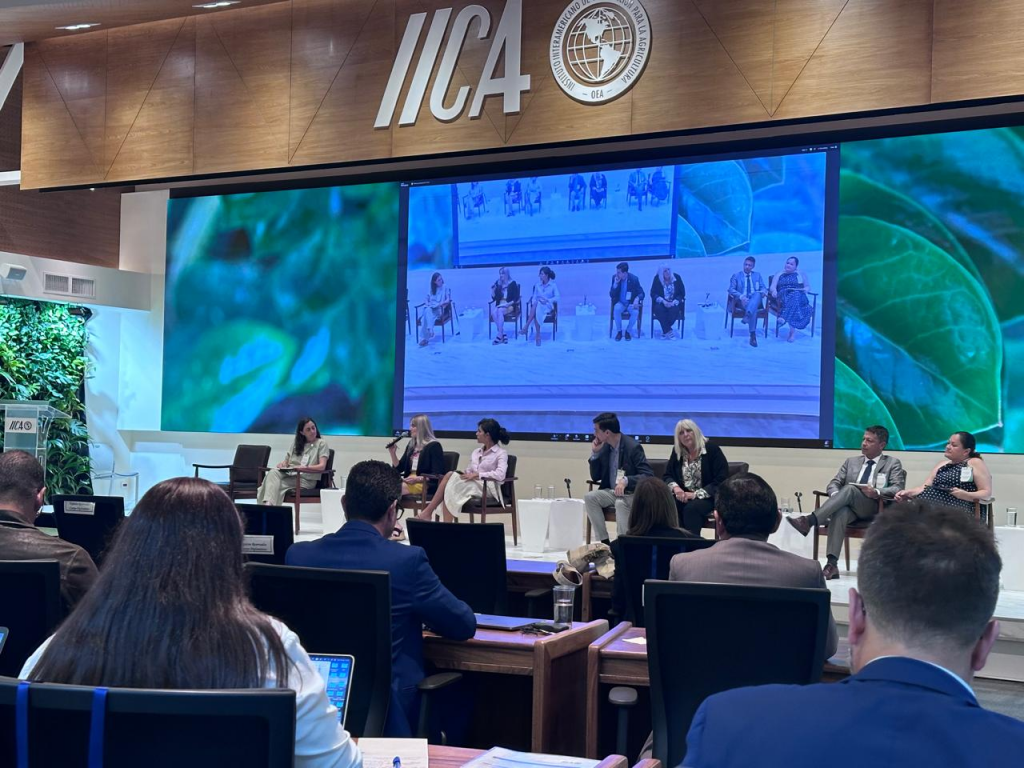Last week, U.S. Grains Council (USGC) Director of Global Ethanol Export Development Alicia Koch traveled to Costa Rica to join USGC Regional Ethanol Consultant Federico Salcedo in attending the 2025 International Conference of the Latin American (LTA) Bioeconomy Network.
The conference, hosted by the Inter-American Institute for Cooperation on Agriculture (IICA), served as a platform for dialogue, debate, analysis, networking and strategic planning around the future of the bioeconomy, including biofuels and ethanol, in LTA and its connection to global developments.
“Ethanol blending policies in Central America are showing promise, with countries like Costa Rica, Guatemala and Panama planning to blend gasoline with 10 percent ethanol (E10) by 2026,” Koch said. “The Council’s engagement in the region is supporting biofuel adoption while establishing relationships and building trust in U.S. ethanol as a readily available option for importers.”
LTA Bioeconomy Network members gathered to discuss outlooks for various factors shaping the future of the bioeconomy in the region like market demand, financing, policy incentives and evaluated the challenges and opportunities of bioeconomy development and partnership building.
The conference also welcomed institutions from other regions, including the U.S., Africa, Asia and Europe, and representatives from global platforms like the G20, IACGB, FAO, the Organization for Economic Cooperation and Development (OECD) and more.
The first sessions focused on bioeconomy policy updates from various countries, examples of public-private models for accelerating bioeconomy use and financial requirements and incentives along the value chain.
Later, speakers outlined pathways for youth involvement in the bioeconomy, metrics for assessing successes and considerations for biofuel policy based on localized economies and geographies.
In addition to participating in the conference, the Council’ s team also met with key stakeholders that will be critical for implementing Costa Rica’s ethanol-gasoline blending program. These stakeholders included representatives from the Ministry of Environment and Energy (MINAE), the Costa Rican Oil Refinery (RECOPE) and the Public Services Regulatory Authority (ARESEP), as well as representatives from FAS/USDA and the Association of Vehicle Importers (AIVEMA).
The meetings focused on the progress made in the program, as well as obstacles that still need to be addressed before the ethanol blending program can be launched in 2026.
Learn more about the Council’s work in Latin America here.
About The U.S. Grains Council
The U.S. Grains Council develops export markets for U.S. barley, corn, sorghum and related products including distiller’s dried grains with solubles (DDGS) and ethanol. With full-time presence in 28 locations, the Council operates programs in more than 50 countries and the European Union. The Council believes exports are vital to global economic development and to U.S. agriculture’s profitability. Detailed information about the Council and its programs is online at www.grains.org.

